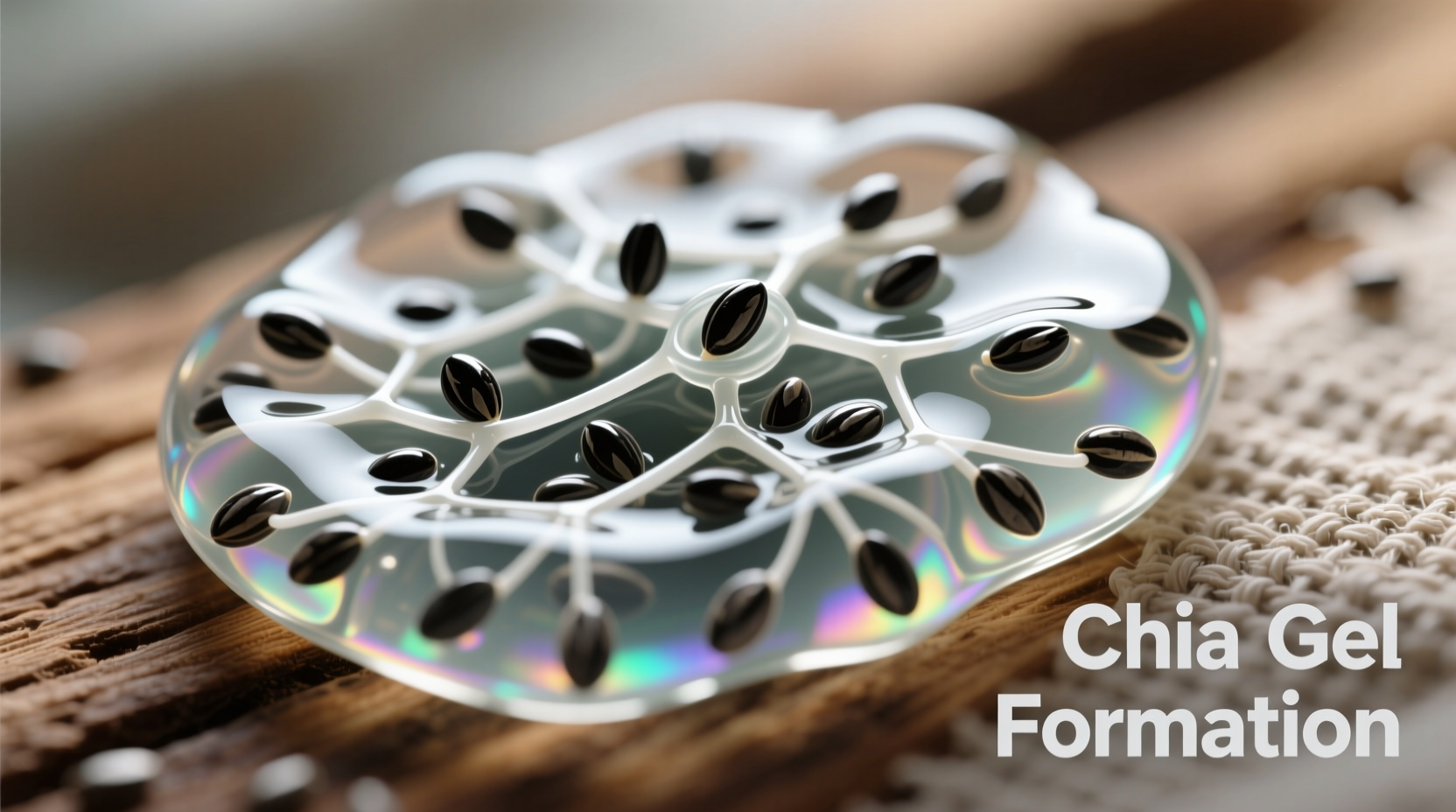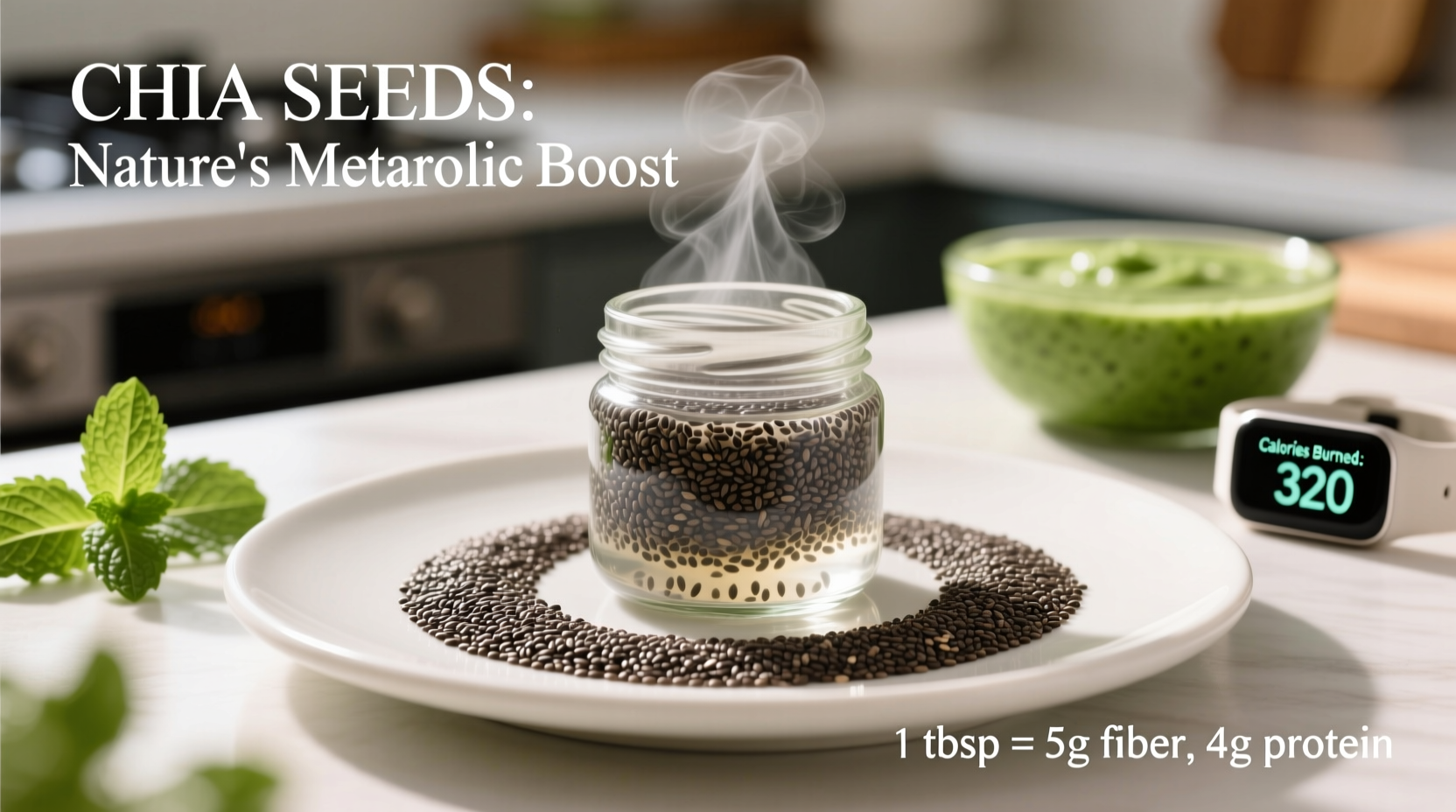Chia seeds can support weight management when incorporated into a balanced diet due to their high fiber content and ability to promote satiety, but they are not a standalone weight loss solution. Research shows modest benefits when combined with calorie control and exercise, with most studies indicating 1-2 pounds of additional weight loss over several months compared to control groups.
The Science Behind Chia Seeds and Weight Management
Chia seeds (Salvia hispanica) have gained popularity in weight management circles, but understanding their actual mechanisms is crucial for setting realistic expectations. These tiny seeds pack a powerful nutritional profile that may support weight management strategies when used appropriately.
One ounce (28 grams) of chia seeds contains:
- 138 calories
- 9-11 grams of dietary fiber (34-44% of daily value)
- 4.7 grams of protein
- 8.7 grams of heart-healthy fats, primarily omega-3s
- Significant calcium, magnesium, and phosphorus
What makes chia particularly interesting for weight management is their remarkable ability to absorb 10-12 times their weight in water, forming a gel-like substance. This property affects digestion and satiety in ways that may support weight management efforts.
What Research Actually Shows About Chia Seeds for Weight Loss
While anecdotal claims often overstate chia's weight loss benefits, scientific research presents a more nuanced picture. Let's examine the evidence from reputable sources:
| Study | Participants | Key Findings | Limitations |
|---|---|---|---|
| University of Toronto (2017) | 77 adults with type 2 diabetes | Chia consumption led to modest weight reduction (0.8 lbs) over 6 months compared to control group | Small sample size; participants already managing diabetes |
| Journal of Nutrition (2015) | 192 overweight adults | No significant weight loss difference between chia and placebo groups after 12 months | Participants maintained regular diets without calorie restriction |
| Mayo Clinic Proceedings (2019) | Meta-analysis of 12 studies | Chia supplementation associated with modest reductions in waist circumference but minimal impact on overall weight | Variability in study methodologies and dosages |
The research consistently shows that chia seeds alone won't produce dramatic weight loss results. However, when incorporated as part of a comprehensive weight management strategy that includes calorie control and physical activity, they may provide modest benefits through several mechanisms:
How Chia Seeds May Support Weight Management
- Fiber-induced satiety: The high soluble fiber content expands in the stomach, promoting feelings of fullness that may reduce overall calorie intake
- Blood sugar regulation: Slower digestion helps prevent blood sugar spikes that can trigger hunger and cravings
- Nutrient density: Provides valuable nutrients without excessive calories when used in appropriate portions
- Hydration support: The water-absorbing property helps maintain hydration, which is often mistaken for hunger
Practical Implementation: Using Chia Seeds Effectively
Understanding the realistic benefits is only half the equation. Here's how to incorporate chia seeds into your weight management plan effectively:
Optimal Serving Size and Timing
For weight management purposes, 1-2 tablespoons (15-30g) per day is sufficient. Consuming chia seeds:
- 30 minutes before meals may help reduce portion sizes
- With breakfast can provide sustained energy and reduce mid-morning cravings
- In water or unsweetened beverages creates a satisfying, low-calorie drink
Preparation Methods That Maximize Benefits
The way you prepare chia seeds significantly impacts their effectiveness for weight management:

- Pre-soaked chia: Soak seeds in water (1:10 ratio) for 15-30 minutes before consumption to maximize the gel-forming effect
- Avoid sugary preparations: Skip pre-made chia puddings with added sugars; make your own with unsweetened almond milk
- Strategic incorporation: Add to Greek yogurt, smoothies, or sprinkle on salads rather than consuming dry
- Hydration balance: Drink additional water throughout the day when consuming chia seeds
Important Considerations and Limitations
Before adding chia seeds to your weight loss regimen, consider these important factors that affect their effectiveness and safety:
Realistic Expectations for Weight Management
Chia seeds are not a magic solution. Research indicates that when used as part of a comprehensive approach, they may contribute to modest weight management benefits. Expect approximately 1-2 additional pounds of weight loss over several months compared to similar diets without chia seeds. Significant weight loss still requires calorie control, physical activity, and sustainable lifestyle changes.
Potential Digestive Considerations
The high fiber content that makes chia beneficial for weight management can cause digestive discomfort if introduced too quickly:
- Start with 1 teaspoon daily and gradually increase to allow your digestive system to adjust
- Always consume with adequate water (at least 8 ounces per tablespoon of chia)
- Individuals with IBS or other digestive conditions should consult a healthcare provider
Calorie Awareness
While nutrient-dense, chia seeds are calorie-dense (138 calories per ounce). Adding them to your diet without adjusting other portions could lead to weight gain rather than loss. Measure portions carefully and account for these calories in your daily intake.
Creating Sustainable Weight Management Habits
Chia seeds work best as part of a comprehensive approach to weight management. Consider these evidence-based strategies that complement chia seed consumption:
- Pair chia consumption with mindful eating practices to enhance satiety signals
- Use chia seeds as a tool to increase vegetable and protein intake in meals
- Combine with regular physical activity for optimal metabolic benefits
- Track your overall dietary patterns rather than focusing on single "superfoods"
Remember that sustainable weight management comes from consistent, healthy habits rather than quick fixes. Chia seeds can be a valuable component of this approach when used appropriately, but they work best as part of a balanced diet and active lifestyle.











 浙公网安备
33010002000092号
浙公网安备
33010002000092号 浙B2-20120091-4
浙B2-20120091-4